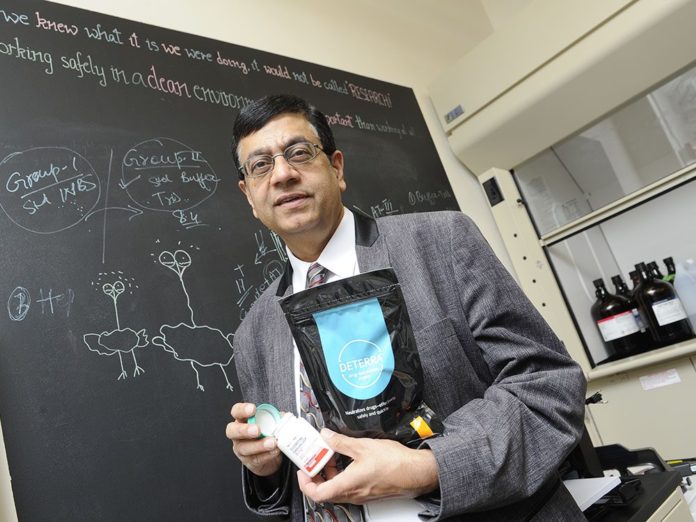Drop It in the Bag
An easy-to-use solution to keep pharmaceuticals out of children’s hands and the water supply
More than 200 million prescriptions for opioids are written annually—enough medication for nearly every American to have a 30-day supply. In fact, the United States is the world’s biggest consumer of hydrocodone and oxycodone.
With so many prescriptions for opioids comes the risk of accidental poisonings and intentional abuse among children. Hospitalizations for opioid poisonings in children increased nearly twofold from 1997 to 2012, according to a Yale University study published in October 2016. Safe and timely unwanted drug disposal may be a means to help prevent diversion.
Since flushing leftover drugs down the toilet is frowned upon by environmental agencies, there are few alternatives for safe disposal by patients other than waiting for a “drug disposal day” in their community. In the past, pharmacists have told patients to dispose of unused or expired medications by putting them in cat litter, sawdust or used coffee grounds. These materials absorb some of the medication, but much of it still remains and can still be dug out of the garbage and abused.
But now a Mercer University pharmacy researcher and Verde Technologies have developed a low cost, easy-to-use system called the Deterra Drug Deactivation System. Ajay Banga, professor of pharmaceutical sciences, co-director of the Center for Drug Delivery Research and the T.P. Haines Endowed Chair in Transdermal Delivery Systems at Mercer University, and William Fowler, director of research and development and a founder of the Minnesota-based Verde Technologies that develops environmentally responsible solutions to pharmaceutical disposal, were the principal scientists who developed the system. The project was funded through Verde’s Phase 2 Small Business Innovation Research contact with the National Institute on Drug Abuse.
Read more about Dr. Banga’s work at Academic Pharmacy Now, the AACP’s flagship publication.









